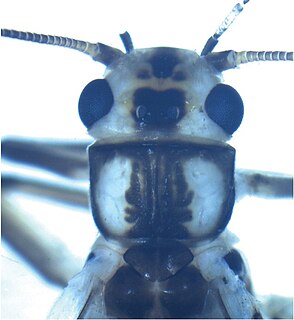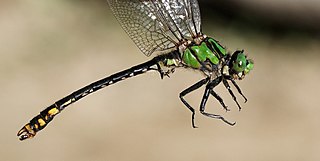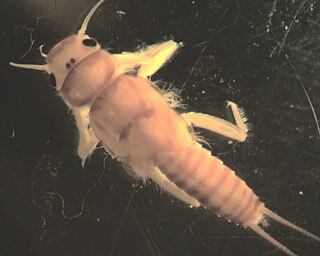
Convolvulaceae, known commonly as the bindweed or morning glory family, is a family of about 60 genera and more than 1,650 species of mostly herbaceous vines, but also trees, shrubs and herbs, and also including the sweet potato and a few other food tubers.

Plantaginaceae, the plantain family, is a family of flowering plants in the order Lamiales. In older classifications it used to be the only family of the order Plantaginales, but numerous phylogenetic studies, summarized by the Angiosperm Phylogeny Group, have demonstrated that this taxon should be included within Lamiales.

Cryptophagus is a genus of beetles in the family Cryptophagidae, the silken fungus beetles. It is distributed across all the biogeographic realms of the world. Like most of the other beetles in the family, these are fungivores, feeding on fungal spores and hyphae.

The Perlidae are a family of stoneflies, with more than 50 genera and 1,100 described species. The majority of the Perlidae are found in eastern North America, but they occur worldwide except for Antarctica and parts of Africa. Their lifecycles range between one and three years. They adults emerge in the summer; they are very active and known to be attracted to light sources. They are usually very sensitive to changes in environment.

Chrysomela is a genus of leaf beetles found almost throughout the world, but not in Australia. It contains around 40 species, including 7 in eastern and northern Europe. It also includes at least 17 species in North America, including the cottonwood leaf beetle Chrysomela scripta.

Neoperla nigromarginata is a species of stonefly native to the Henan province of China. The forewing measures 11.8 millimeters in males, and 13.4–14.0 millimeters in females. The head is pale yellow to brown with black markings. Legs and antennae are brown. The species name refers to the dark-colored margins of the pronotum. The species is similar in many aspects to Neoperla flagellate and N. tuberculata, but can be distinguished by the size of the aedeagus. The Aedeagal sac and tube are approximately the same length, with the sac being membranous and covered in numerous small spines. A pair of flagella are discernable at the sac's apex.

Ophiogomphus mainensis, the Maine snaketail, is a species of clubtail in the family of dragonflies known as Gomphidae. It is found in North America.
Neoperla clymene, the coastal stone, is a species of common stonefly in the family Perlidae. It is found in North America.

Neoperla is a genus of common stoneflies in the family Perlidae. There are more than 260 described species in Neoperla.
Neoperla coosa, the coosa stone, is a species of common stonefly in the family Perlidae. It is found in North America.
Milesia scutellata is a species of syrphid fly in the family Syrphidae.
Mixogaster breviventris is a species of syrphid fly in the family Syrphidae.
Chrysotoxum chinook is a species of syrphid fly in the family Syrphidae.
Aradus funestus is a species of flat bug in the family Aradidae. It is found in North America.
Aradus depictus is a species of flat bug in the family Aradidae. It is found in North America.
Sphecomyia nasica is a species of syrphid fly in the family Syrphidae.
Spilomyia liturata is a species of syrphid fly in the family Syrphidae.

Chrysomela mainensis is a species of leaf beetle in the family Chrysomelidae. It is found in North America.
Animal Ethics is a nonprofit organization formed to promote discussion and debate around issues in animal ethics and to provide information and resources for animal advocates. They also do outreach work in several countries on the issue of speciesism. Their aim is to create a world where moral consideration is extended to all sentient beings. The organization's website covers topics such as speciesism, sentience, veganism and wild animal suffering and has content translated into several languages.








